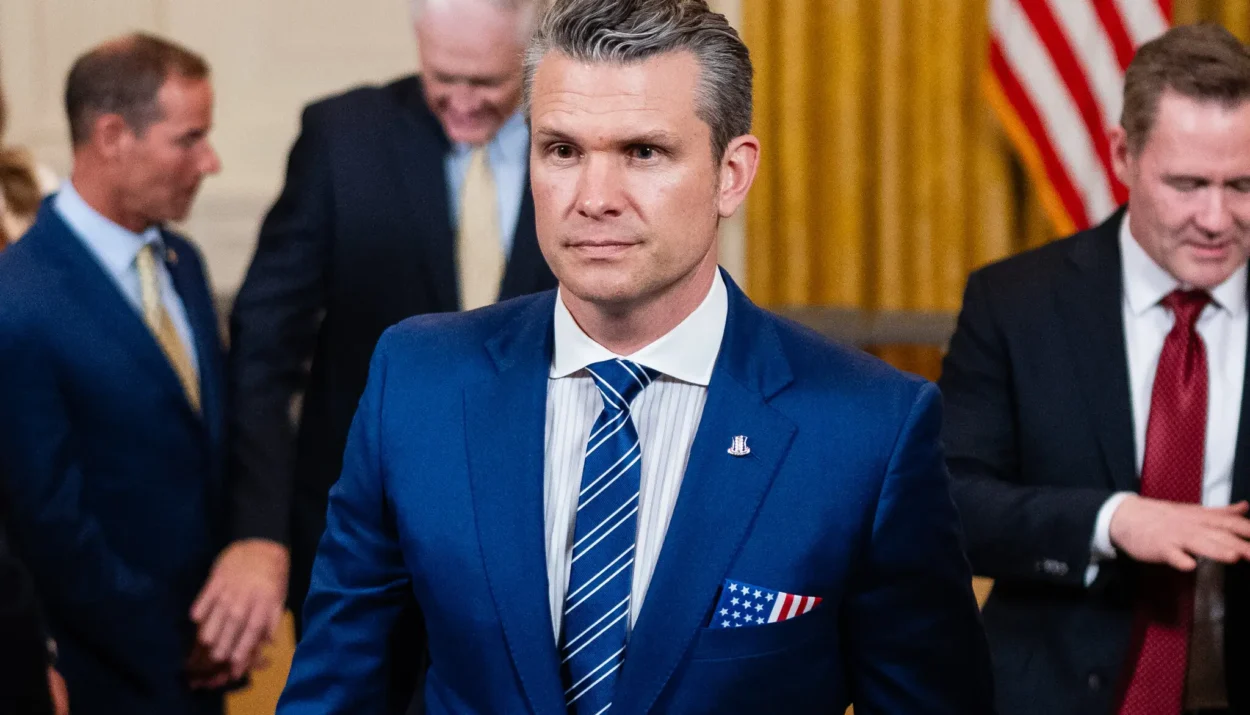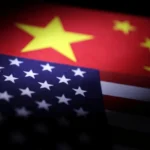U.S. Defence Secretary Pete Hegseth is facing intense scrutiny after multiple reports confirmed he shared details of a planned military airstrike on Houthi militants in Yemen with individuals outside official government channels, including his wife and brother, through an encrypted Signal group chat.
The chat, named “Defense | Team Huddle,” reportedly included 13 participants, among them:
- Jennifer Hegseth, the Secretary’s wife and a Fox News producer
- Phil Hegseth, Pete’s brother and a Department of Homeland Security adviser currently assigned to the Pentagon
- Tim Parlatore, Hegseth’s personal attorney, who also serves as a Navy reservist attached to the Secretary’s office
Two Signal Chats — Two Investigations
The latest revelations follow reports from The New York Times and CNN that Hegseth had previously shared sensitive operational plans in a separate Signal group chat with top Trump administration officials. That chat mistakenly included Jeffrey Goldberg, editor-in-chief of The Atlantic, leading to widespread media exposure of confidential military details — including F/A-18 fighter jet flight schedules for the March 15 airstrike on Houthi targets in Yemen.
While the Pentagon maintains that no classified information was shared, multiple former officials and defense experts warn that even unclassified operational data — shared on unapproved apps — could put U.S. troops at risk.
“There was no classified information in any Signal chat,” said Pentagon spokesperson Sean Parnell on X. “The Trump-hating media continues to be obsessed with destroying anyone committed to President Trump’s agenda.”
Still, the Department of Defense inspector general has launched a formal review into whether Hegseth and his staff violated protocol by using Signal for official communications. Acting Inspector General Steven Stebbins confirmed the inquiry in a letter to the Secretary.
Fallout and Internal Turmoil
The growing controversy has triggered mass suspensions and firings within the Pentagon. At least three senior aides — Dan Caldwell, Colin Carroll, and Darin Selnick — were removed in connection with the investigation and later criticized the process as politically motivated and lacking transparency.
“We still have not been told what exactly we were investigated for,” they said in a joint statement.
Adding fuel to the fire, former Pentagon spokesperson John Ullyot — who resigned last week — published a blistering op-ed in Politico, calling recent events “a month of total chaos at the Pentagon.”
“From leaks of sensitive operational plans to mass firings… the dysfunction is now a major distraction for the president — who deserves better from his senior leadership,” Ullyot wrote.
Political Pressure Mounts
Critics from both sides of the aisle — including several congressional Democrats — are calling for Hegseth to resign, arguing that his behavior jeopardized national security.
The White House, however, has downplayed the controversy.
“No matter how many times the legacy media tries to resurrect the same non-story, they can’t change the fact that no classified information was shared,” said Anna Kelly, White House deputy press secretary.
Still, with the Pentagon in disarray, and internal confidence in leadership shaken, many insiders question how long Hegseth can remain in his role.
“President Donald Trump has a strong record of holding his top officials to account,” Ullyot wrote. “Given that, it’s hard to see Defense Secretary Pete Hegseth remaining in his role for much longer.”
Background:
- The Signal app, while encrypted, is not approved for sharing sensitive or classified defense information
- Hegseth reportedly created the private group during his confirmation process (More about: Here Are Attack Plans That Trump’s Advisers Shared on Signal)
- The initial group chat — which inadvertently included a journalist — revealed weapon system details and airstrike timelines
As the Pentagon’s inspector general continues its probe, the fallout from Hegseth’s communication blunder has evolved into a full-blown leadership crisis — one that may test President Trump’s second-term defense team more than any external threat.










